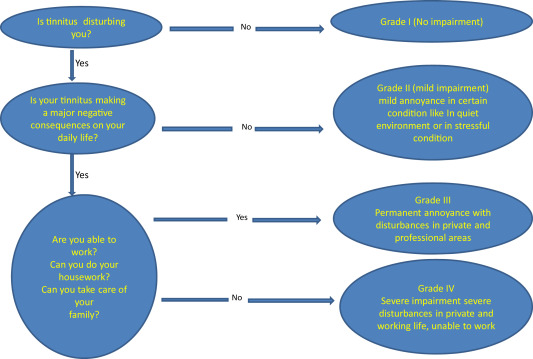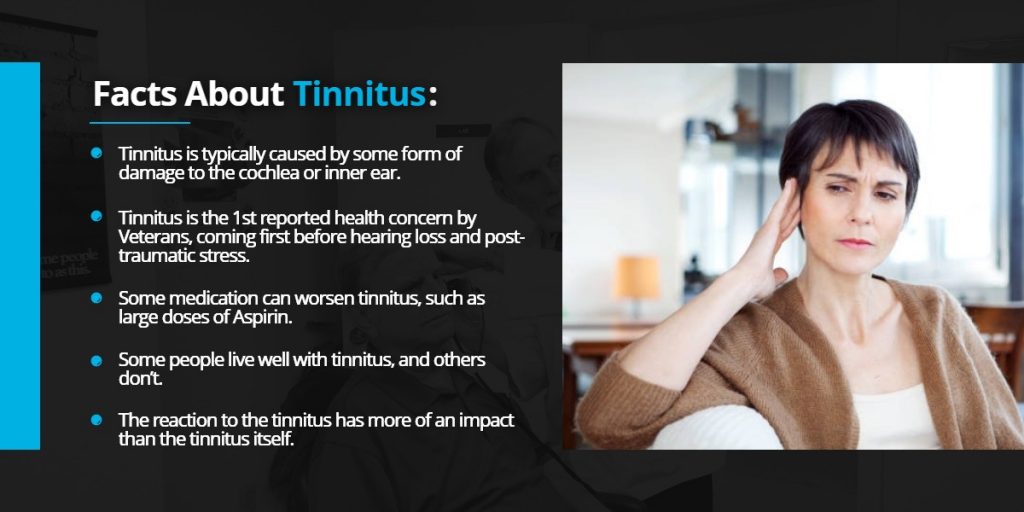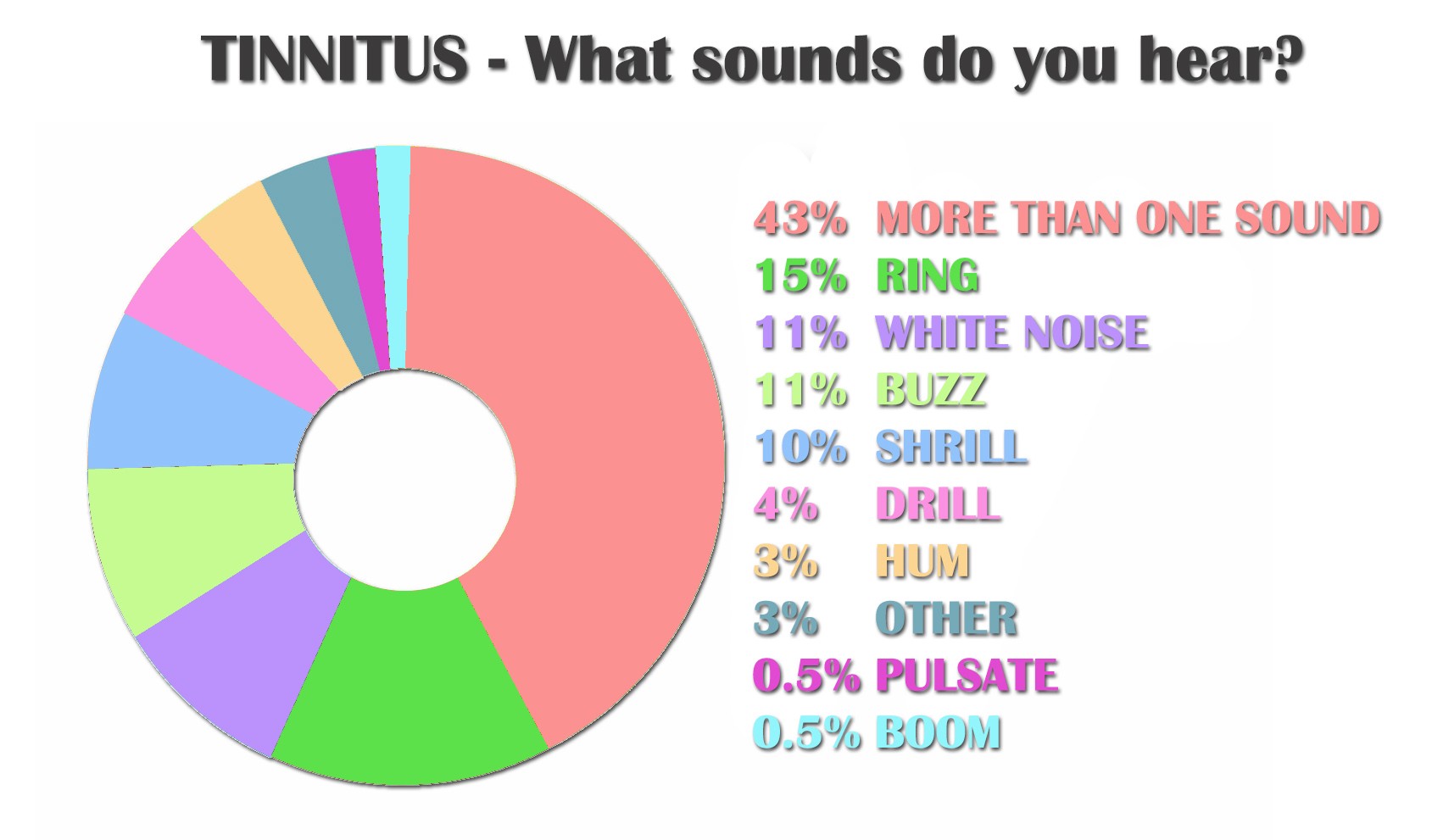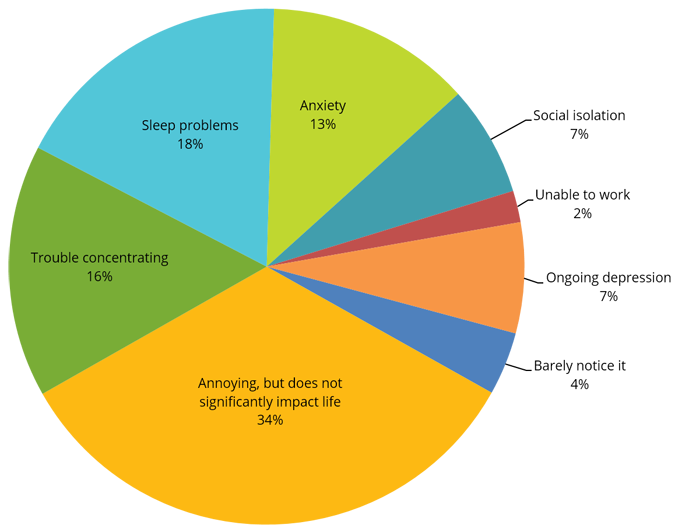https://philaholisticclinic.com/tinnitus-treatment/
Tinnitus treatment is a challenge. Is tinnitus curable? Tinnitus is not curable. However, the goal of treatment is to help you manage your perception of the sound in your head. There are many treatments for tinnitus that can help reduce the perceived intensity of tinnitus, as well as its omnipresence.

Listed below are different allopathic approaches to tinnitus treatment:
Medications
Drugs can’t cure tinnitus, but in some cases, they may help reduce the severity of symptoms or complications. To help relieve your symptoms, your doctor may prescribe medication to treat an underlying condition or to help treat the anxiety and depression that often accompany tinnitus.
Noise suppression
Many times, tinnitus can’t be cured. But some treatments can help make your symptoms less noticeable. Your doctor may suggest using an electronic device to suppress the noise. Devices include:
- White noise machines. These devices, which produce a sound similar to static, or environmental sounds such as falling rain or ocean waves, are often an effective tinnitus treatment. You may want to try a white noise machine with pillow speakers to help you sleep. Fans, humidifiers, dehumidifiers, and air conditioners in the bedroom also produce white noise and may help make tinnitus less noticeable at night.
- Masking devices. Worn in the ear and similar to hearing aids, these devices produce a continuous, low-level white noise that suppresses tinnitus symptoms.
However, note that natural treatment has also been proven to be effective to help reduce the symptoms of tinnitus.
Even if the name has been taken from the Latin term tinnitus, which means ‘ringing’, the sound heard by the affected human being varied a lot. It might vary from whooshing, hissing, clicking, ticking to purring.
What is Tinnitus?
In simple terms, this refers to the noise that can be heard inside the ear or head of the affected person. The sound is described as ringing, wheezing, buzzing, and other mostly high-pitched, shrill, and repetitive notes. For some, the noise is heard periodically; for others, it is heard constantly without pause or cessation.

While there is no actual loss of hearing in tinnitus, the repetitive and constant sounds distract the person from clearly perceiving or interpreting the sounds from his/her surroundings. For people with worst cases, tinnitus provides them virtually no quiet moment during all waking hours and even causes them difficulty in getting a decent good night’s sleep.
The sounds heard are sometimes described as phantom noises and they range in a variety of tones and pitches. Some people hear sounds that resemble a low roaring noise but for many people, it is a high pitch squeal. Tinnitus can occur in only one ear or both. For some people, it is a consistent noise and for others, it comes and goes.
Normally, tinnitus is something that only the person with the condition can hear because it is not coming from any external source. This is referred to as subjective tinnitus. However, in very rare cases, your health care physician can hear the sounds you hear when they perform your examination. This type is referred to as objective tinnitus.
Causes of tinnitus
Several health conditions can cause or worsen tinnitus. In many cases, an exact cause is never found.
Common tinnitus causes
Hearing loss.
- There are tiny, delicate hair cells in your inner ear (cochlea) that move when your ear receives sound waves. This movement triggers electrical signals along the nerve from your ear to your brain (auditory nerve). Your brain interprets these signals as sound. If the hairs inside your inner ear are bent or broken this happens as you age or when you are regularly exposed to loud sounds they can “leak” random electrical impulses to your brain, causing tinnitus.
Ear infection or ear canal blockage.
- Your ear canals can become blocked with a buildup of fluid (ear infection), earwax, dirt, or other foreign materials. A blockage can change the pressure in your ear, causing tinnitus.
Head or neck injuries.
- Head or neck trauma can affect the inner ear, hearing nerves, or brain function linked to hearing. Such injuries usually cause tinnitus in only one ear.
Medications.
- Several medications may cause tinnitus. Generally, the higher the dose of these medications, the worse tinnitus becomes. Often the unwanted noise disappears when you stop using these drugs. Medications that are known to cause tinnitus include nonsteroidal anti-inflammatory drugs (NSAIDs) and certain antibiotics, cancer drugs, water pills (diuretics), antimalarial drugs, and antidepressants.
Other causes of tinnitus are:
- An earwax build-up
- A middle ear infection
- Meniere’s disease – a condition that also causes hearing loss and vertigo (a spinning sensation)
- Otosclerosis – an inherited condition where an abnormal bone growth in the middle ear causes hearing loss
Symptoms of tinnitus
Many people don’t realize tinnitus is a real condition that can be treated and they tend to suffer from these symptoms instead of seeking medical help. Knowing the symptoms of tinnitus may help you know if you should schedule an appointment with your health care provider. The main tinnitus symptom is hearing sounds inside your head or ears. These sounds include the following:
- Ringing
- Hissing
- Whistling
- Roaring
- Buzzing
- Clicking

These noises or sensations can be very annoying and interfere with your job, recreational activities, and normal life. When these noises are loud it can limit your ability to concentrate on what you are doing. It can also make it difficult to hear when someone is talking to you or when you are trying to listen to music or watch television.
There are other symptoms of tinnitus that affect many people. Some complain of regular headaches and pain in the ears. Others have described a sense of fullness in one or both ears. Many people with tinnitus get dizzy spells especially when they stand up or move too quickly.
Depression is also associated with tinnitus. It is believed that the aggravation of dealing with the noises causes a person to feel depressed. Therefore, it stands to reason that if the tinnitus is treated successfully it can help to relieve the signs of depression. If you have any of the symptoms of tinnitus you should visit your health care physician. They can perform several tests to determine the origin of the noise.
The more information you can provide for your doctor the easier it will be for them to determine the cause and the treatment for your condition. There are a few simple things that you can do that may help to reduce your symptoms. For example, you should reduce your exposure to loud noises as much as possible.
Effects of Tinnitus
Tinnitus can greatly affect the quality of life of the person suffering from it. Normal activities, even something as simple as walking on the street, can be severely limited and risky due to the difficulty in focusing and cognitive ability brought about by the distracting noises. On a day-to-day basis, tinnitus causes headaches, dizziness, lack of sleep, and plain hopelessness at having to endure such conditions that are seeming without a cure.

Likewise, the social, professional, and personal relationships of a person with tinnitus are also limited, since interacting with other people requires clearly understanding and correctly interpreting nuances in verbal and interpersonal communications. Career choices can be extremely narrowed down, as important professional skills, such as the ability to focus and to follow instructions, can be hindered by the auditory distractions caused by tinnitus. Working in the fields of construction and infrastructure, machinery operations, and occupations with hazardous environments are also often crossed out from workplace possibilities.
Natural treatment for tinnitus
The medical and scientific community has not been able to find a cure to date. Natural tinnitus treatment is currently the way to go. Listed below are a few different methods of natural treatment for tinnitus
Home remedies for tinnitus – most common tinnitus treatment
Whether you are suffering from day-to-day tinnitus symptoms or you experience ringing in your ears every once in a while, there are several at-home remedies for tinnitus that help reduce the symptoms of tinnitus.
Listed below are home remedies for tinnitus
Manage stress levels
- Managing your stress levels is important when living with tinnitus, as stress can make the condition more noticeable. Anything that calms you down will be great for your symptoms, including light exercise, guided meditation, therapy tapes, or even simply listening to something soothing that makes you feel better.
Quit smoking
- Smoking has a twofold effect when it comes to tinnitus. First, it can harm the blood flow to the sensitive nerve cells that control your hearing, thereby creating more of a problem for the ears themselves. Second, smoking also acts as a stimulant in your body, which can make the ringing in your ears sound louder. Kicking the habit can help reduce the effects of these symptoms significantly.
Reduce alcohol consumption
- Alcohol increases blood flow and relaxes blood vessels, especially in the inner ear area, and this can be extremely dangerous for your hearing if you suffer from tinnitus, so it’s important to be aware. If possible, avoid alcohol consumption altogether to be on the safe side, especially if your symptoms are acting up while you’re in a social situation.
Exercise
- Exercise can also help relieve the symptoms of tinnitus. One of the most effective exercises to practice is neck exercises for tinnitus. Neck exercise for tinnitus reduces tensions by stretching your jaw and neck muscles intensively to make the fasciae supple again. With the following relaxation exercises, you can loosen the tense muscles and fasciae in both areas.
Yoga for tinnitus – traditional oriental tinnitus treatment
Yoga is one of the home remedies for tinnitus that effectively controls or manage tinnitus. Yoga for tinnitus helps improve circulation, which has been linked to a healthy auditory system. The yoga for tinnitus poses below are great for promoting healthy blood flow and may be especially helpful in reducing tinnitus symptoms:
- Trikonasana (triangle pose)
- Padangusthasana (hand to big toe pose)
- Adho Mukha Svanasana (downward-facing dog)
- Ustrasana (camel pose)
Herbal remedies for tinnitus – effective home-based tinnitus treatment
Herbal remedies for tinnitus are particularly nice to take because they tend to have little or no side-effects and can be tailored to fit your particular type of tinnitus. If you have tried traditional tinnitus remedies such as prescription medications, maskers, or even surgery and found less than desirable results, then you may be pleasantly surprised by the results you get with herbal remedies.
Listed below are herbal remedies for tinnitus
Sesame
- These Chinese herbs for tinnitus have been used as an herbal remedy for tinnitus, even for dizziness and blurry vision.
Lesser Periwinkle (Vince Minor)
- This herb contains vincamine. It is commonly used in Germany in treating tinnitus. The recommended dose is 20mg to be taken 3 times a day. This should be carefully taken with precaution since overdose has severe side-effects such as abrupt decrease of blood pressure, relative changes in blood count, etc.
Fenugreek Sees Tra
- A cup of tea from fenugreek in the morning, noon, and night is said to relieve tinnitus.
Castor Oil
- 3-4 drops in each ear and an insertion of cotton plug right after has been proven by folk remedies to be useful in treating tinnitus.
Acupuncture for tinnitus – traditional Chinese natural tinnitus treatment
Acupuncture is a traditional Chinese medicine based on the understanding that we have a vital life force in our bodies called chi; energy that travels along pathways in the body known as meridians.
Studies have shown that patients felt a noticeable improvement in their condition after acupuncture for tinnitus therapy, however, the effects were temporary and regular visits were required.
Acupuncture for tinnitus can be a useful tool in your battle to help relieve the symptoms of tinnitus, but that you will need to incorporate other practices such as diet control, herbal remedies, and an active lifestyle if you are to achieve a balanced and holistic solution to the discomfort caused by Tinnitus.
Homeopathic treatment for tinnitus – #1 natural treatment for tinnitus
Homeopathy for tinnitus is a natural treatment for tinnitus that does not cause any side effects because of their extremely diluted nature, and the fact that they are made of natural substances.
Listed below are homeopathic remedies for tinnitus relief relief
Salicylic acid.
- This homeopathic remedy for tinnitus can be used if you experience a loud roaring or ringing sound as well as some hearing loss and/or vertigo (dizziness).
Chininum sulphuricum.
- If you experience more of a buzzing, hissing, ringing, or roaring sound that is so loud that it interferes with normal daily activities, then consider this homeopathic remedy for tinnitus Chininum sulphuricum can also be useful if you experience chills or dizziness, which tend to amplify your tinnitus.
Kali Iodatum.
- If your tinnitus can be described as a ringing and you do not have other symptoms, then consider Kali Iodatum.
Aurum.
- This homeopathic remedy for tinnitus can be used if your tinnitus is accompanied by high blood pressure and/or depression.
Conclusion
For some people, there may be an underlying and treatable condition. Your doctor may advise you to switch to a different medication, remove earwax, or address a blood vessel condition.
While there may be medicines or devices that may help you experience the noise less inconvenient, there may not be anything in allopathic medicine that can entirely remove the noise.
When considering supplement use, speak to a doctor first to weigh the potential risks and benefits.
If you leave in the City of Brotherly Love contact Philadelphia Holistic Clinic (267) 284-3085 to schedule an appointment with Dr. Tsan for initial evaluation and treatment.
Comments
Post a Comment